Koster - the South African town where residents took back control
- Published
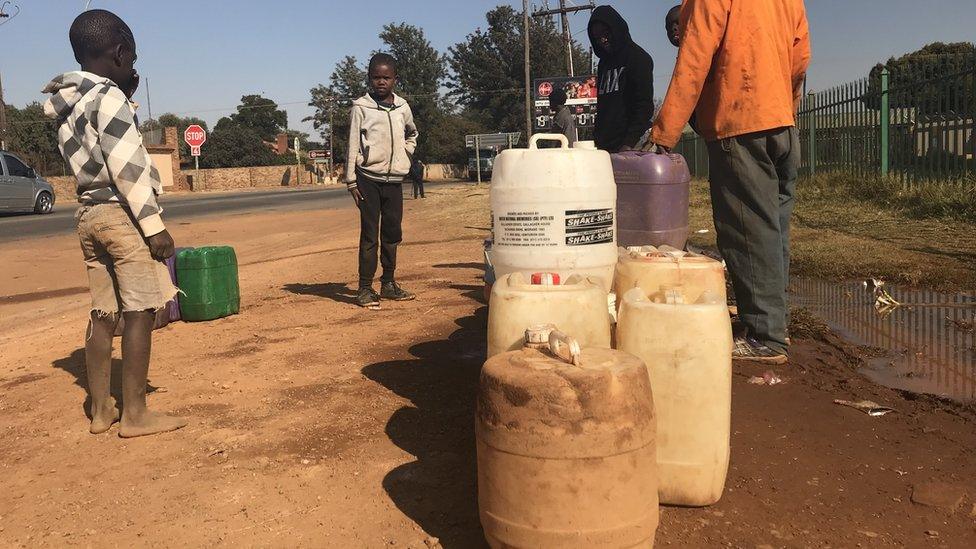
Residents of Koster have lived with water shortages for several years and are often forced to buy water from those with boreholes
Koster lies in the same region as the South Africa's rich platinum mines but nothing about this town speaks of the wealth surrounding it.
"Our lives have gotten worse over the years and it seems like no-one cares," says George Ndlovu, a 65-year-old pensioner from Reagile, a township in Koster.
"Things are so bad that many people here have stopped believing anything will ever change unless we stand up and fight for it."
Kim Medupe's eight-year term as the town's mayor has been characterised by erratic water supply, unreliable electricity, potholed roads. A place where raw sewage flows through some homes.
Residents also accused her of corruption and chased her out of town during violent demonstrations. She denies the allegations and has not been charged.
'We want the mayor to go'
It is, sadly, an all-too-common picture of failed municipalities in South Africa.
But the final straw came in Koster when the council seemingly prioritised the tarring of a road to Ms Medupe's four-star guesthouse over one to a clinic.
In a show of anger, a group of residents burnt down the guesthouse and a couple of other properties, including Ms Medupe's home. The townsfolk also targeted a number of councillors.
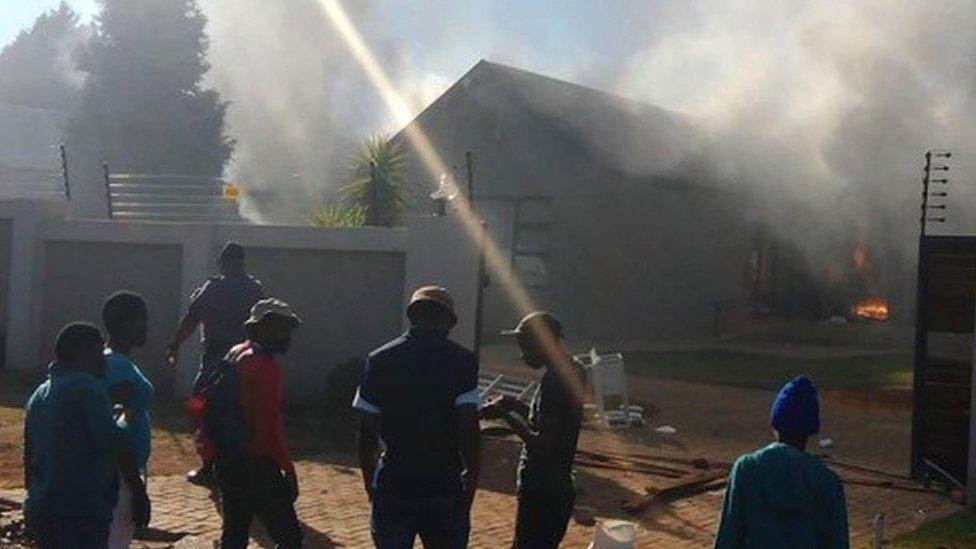
Kim Medupe's guesthouse was set on fire...
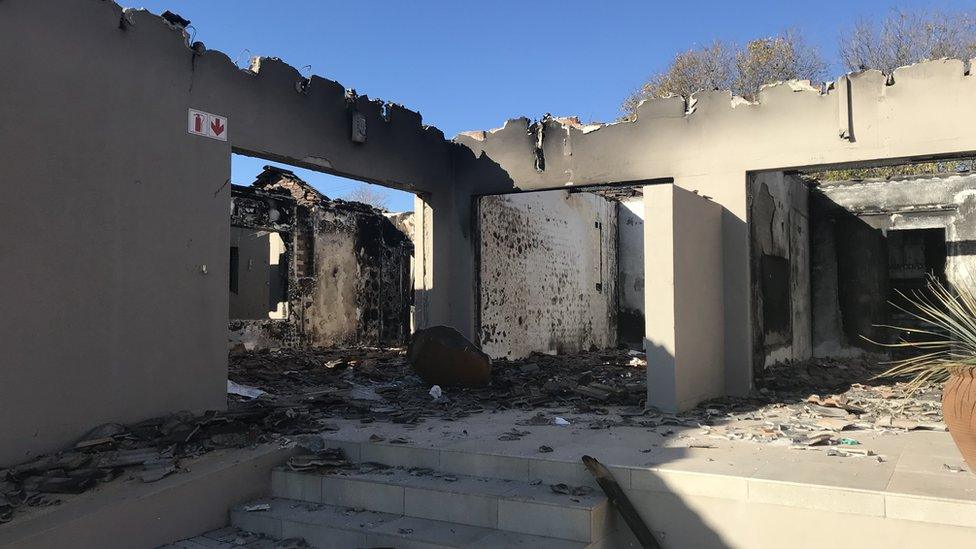
This is what remains
Community leader Tshabalala Mabe was arrested, along with 30 other residents during those protests and is out on bail.
"The anger has been bubbling under for a long time and the people have had enough. The mayor has failed the people of Koster. We want the mayor to go," he says.
"We have nothing against her personally but she has failed in her job and we are suffering for it."
'Stand up for your rights'
The municipality of Kgetlengrivier, which includes the towns of Koster, Swartruggens and Derby run by Ms Medupe, was recently declared dysfunctional by the Department of Co-operative Governance and Traditional Affairs, which said the municipality was incapable of supplying water in contravention of the country's constitution.
In fact the entire North West province has now been placed under administration over allegations of corruption.
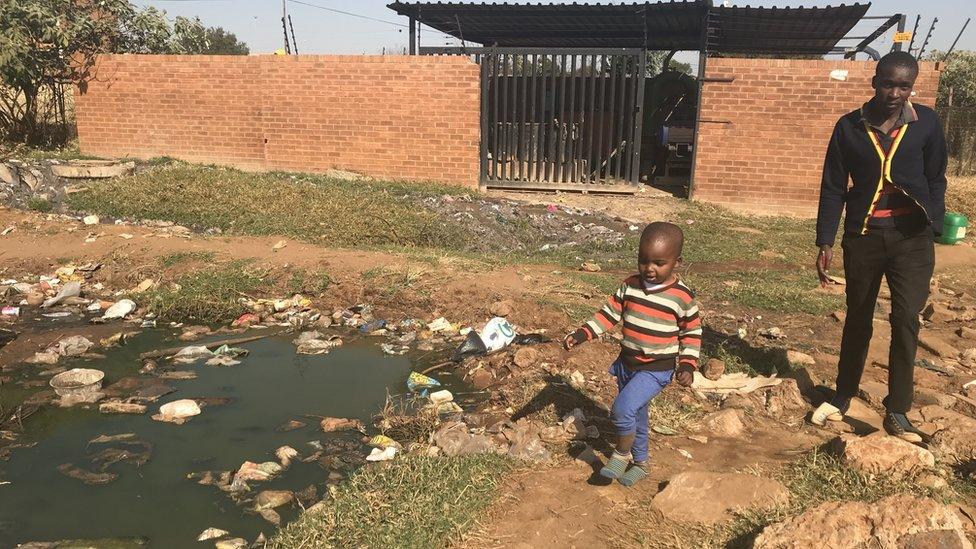
In one part of this township the only source of running water is inside this broken sewage pump station - residents need to wade through faeces to get to it
While demonstrations over the government's slow delivery of amenities such as water, electricity and proper sanitation, known here as service delivery protests, are commonplace across South Africa, something different happened in Koster off the back of these protests.
The unhappiness in this small town stirred the residents to petition the courts to intervene and it paid off.
A high court granted residents an interim court order to manage the town's key services, including supplying water to its 50,000 inhabitants.
The ratepayers' association also plans to take over other services, including the sewage plant and restoring the roads, but that is some time away.
"We knew that we had to intervene or things would get worse," says Carel van Heerden, the association's chairman.
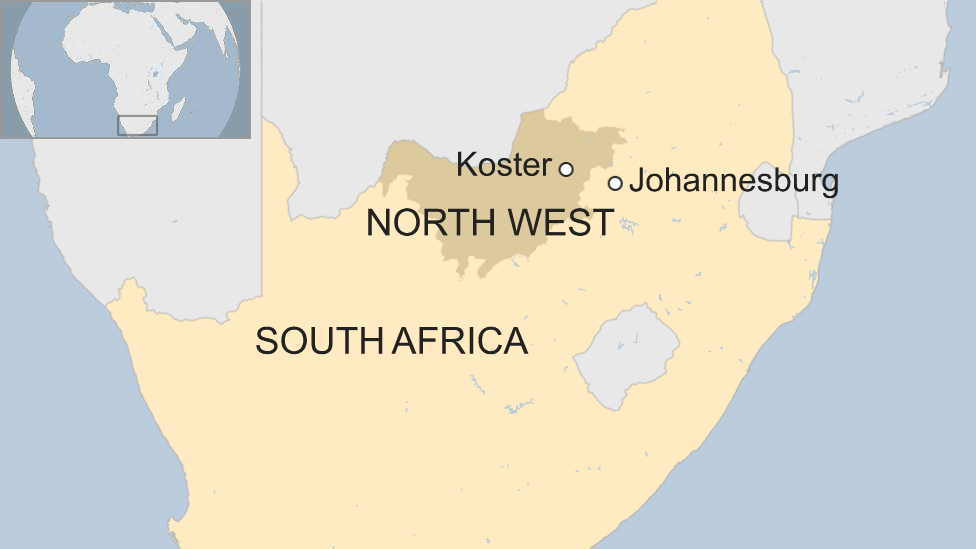
"Some people, especially in the suburbs, are off the grid - they have solar power and have boreholes - but this is our community and in the end what affects some people, affects everyone."
He tells me they've received enquiries from other communities around South Africa who feel failed by their politicians.
"People should not be afraid to stand up for their rights and use the courts. If you are right, you will win in the end," Mr Van Heerden tells me as we walk through the water plant during a routine inspection.
"There are a lot of service delivery protests in this country but through our action, we have shown that there are other options that residents can take."

You might also be interested in:

And what of the mayor blamed for it all?
We met Ms Medupe at a guesthouse a few hours away from Koster, where she is currently in hiding.
She tells me that the unrest back home is politically motivated - a manifestation of the divisions within the ruling African National Congress (ANC), a party she has been a member of for many years.
She blames the slow delivery of services on receiving insufficient funding from the national government.
But I press her on claims that her municipality has failed because she is presiding over a corrupt administration - that in her tenure she has used her position to amass great wealth, a number of properties and luxury cars, while neglecting her constituency.
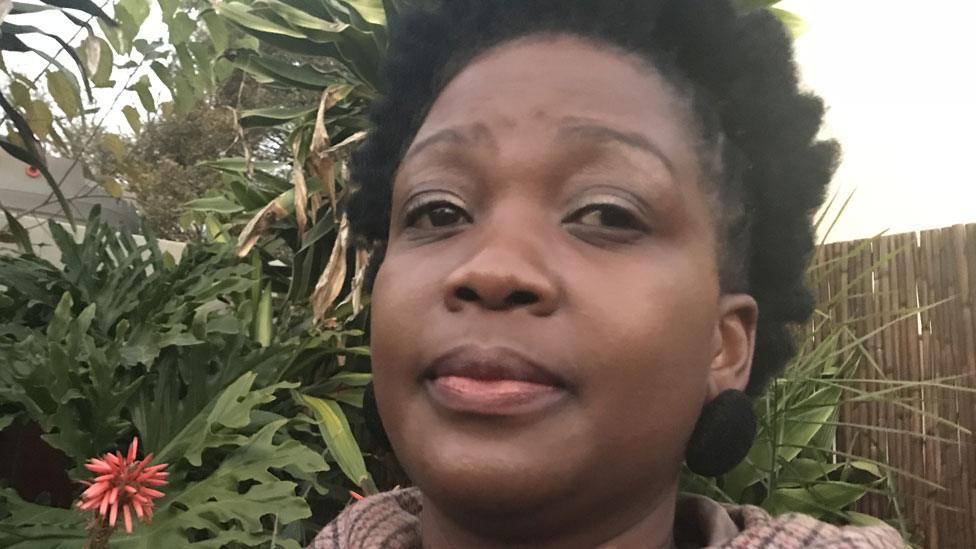
Kim Medupe says the central government did not give her enough money to deliver good services
"I am not corrupt. There are challenges in Koster and yes we could have done better with some services like electricity but I have served my people honestly," she said, a bodyguard standing a few metres away.
Ms Medupe tells me she now fears for her life. And perhaps with good reason - the anger of the residents back in Koster is palpable.
'We have to do everything ourselves'
Mr Ndlovu lives in a small house with his two children, wife and mother-in-law. His street has been flooded with raw faeces for three years after the pumps in township were closed because the municipality failed to pay its accounts with power utility Eskom.
Mr Ndlovu believes his health has deteriorated because of his unhygienic living conditions.
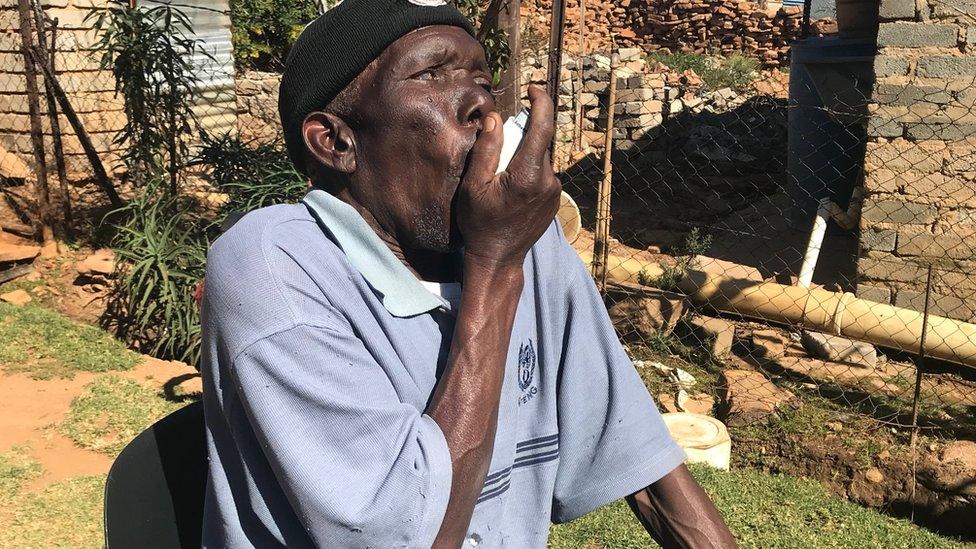
Reagile resident George Ndlovu believes his health has deteriorated because of his unhygienic surroundings
"Things have been bad in Koster generally but it's a lot worse for us in the township," Mr Ndlovu tells me, as a draws a breath from his asthma pump.
"We go for months without water, septic tanks flood and no-one comes to drain them we have to do it ourselves. We have to do everything ourselves here because the municipality has collapsed, it's because we elected these people into power."
Since the court intervention things are slowly changing in Koster but the suffering is not over yet, especially for the poorer residents.
It has raised the question - where the authorities have failed could more South Africans be driven to take back their towns?
- Published4 June 2018

- Published29 May 2018
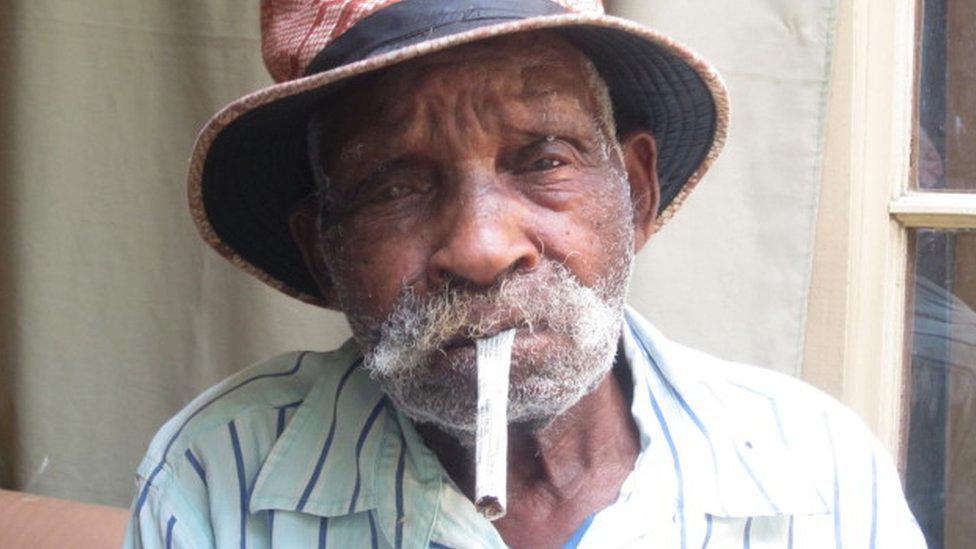
- Published9 July 2024
